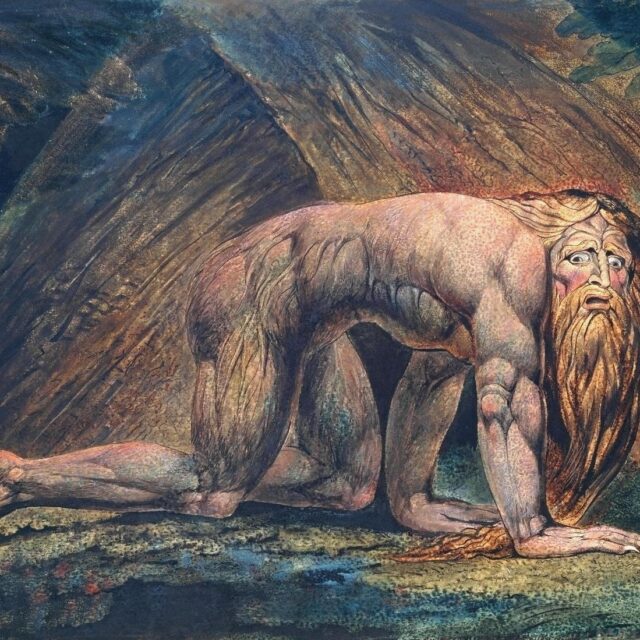
Introduction
Psalm 73 is a transparent look into the heart of Asaph, one of David’s worship leaders (1 Chron. 6:31-32, 39). The Psalm is a confession of the dangers of bitterness and Asaph’s close call with the disease. He details his close call with bitterness and reveals his cure. The Psalm serves as an encouragement for the confused Christian who questions God’s justice, but it also serves as a reminder that short-sighted Christianity always leads to discouragement and doubt.
God is Good and I am Not
Asaph begins with the great declaration that God is good to those who have a pure heart in Israel (v. 1). The goodness of God was what Asaph decided to focus on to combat his inner envy of the wicked. Despite this positive declaration, Asaph confesses his struggle with justice. Although He believed that God is good, he had almost fallen (v. 2). Asaph’s feet had almost come out from under him and plunged him into disbelief. This close call stemmed from the envy of the arrogant because of their apparent prosperity (v.3). Asaph had been dedicated to God and His people, but it appeared to him that wickedness brought more prosperity than obedience.
Always at Ease, They Increase in Riches
The life of the wicked included freedom from suffering, luxury, and whatever their heart desires (vv. 4-7). In their riches, the wicked turn others to follow after them, become skeptics towards God, and live a life of ease (vv. 10-12). Job faced the same reality as Asaph (Job 21:7-15). There is a simple truth that the wicked prosper, and during our season on earth, it can become difficult watching the wicked grow in earthly riches. Shouldn’t the ones who love God see the same blessings, if not more?
Asaph reflected on his own life and realized that it was characterized by affliction and rebuke (v. 14). This drove Asaph to wonder if his devotion to God was in vain, but he would never dare say it (vv. 13, 15). How often have similar thoughts crossed our minds? We can be tempted to compare the trials that often come as a result of our faith and compare them to the comfort of conforming to this world. Many of us would never admit that the life of a wicked man seems far better than the righteous, but in our moments of nearsightedness, we sure can think it.
Until I went into the Sanctuary of God
Asaph tried to make sense of his frustrations, but understanding his situation was wearisome (v. 16). This literally means that Asaph had meditated on the issues which weighed on his mind. This wearisome task was lifted off of his shoulders when Asaph entered into the sanctuary of God (v. 17). It was in the sanctuary of God where Asaph was able to understand the truth and find peace. Asaph found peace when he discerned the end of the wicked. He recognized that the end of the wicked man will come. Despite their prosperity, their end is inevitable. They can never have a sure grip on their prosperity, they can be destroyed in a moment, and their judgment will come (vv. 18-20). Nothing among Pharaoh’s kingdom could prevent the plagues, Jezebel could not sway the dogs from eating her, and nothing about the greatness of Herod Agrippa made him unappetizing to the worms. The end of the wicked was the reminder that Asaph needed to keep his balance and keep himself from falling into despair.
Upon his realization that the wicked did not have it better than the righteous, Asaph was grieved and pricked in his heart. He realized that because of his envy and bitterness toward the wicked, he became a brute and a beast toward God. Such is the nature of bitterness and envy. It ruins our intellect and blurs our judgment. It is envy that rots the bones (Prov. 14:13), and bitterness that causes trouble (Heb. 12:15). Our entire perspective can be shaped by the thing or person which we are bitter toward. Bitterness can cause a man to see everything through the lens of what others have done to him or what others are doing. Because of the bitterness, Asaph began to question if his faith was worth it, but when he began to meditate on the truth, his perspective was changed. The truth is the first thing which believers should think upon (Phil. 4:8). It is the truth of God that sets people free (Jn. 8:31-32). In the sanctuary of God, Asaph found truth and saw beyond the temporal success of the wicked. The truth set his eyes on something of eternal value.
It is Good to be Near God
Asaph concludes his thoughts with revived optimism that is centered around God. It is God that guides his children (vv. 23-24). He proclaims that God is his greatest desire. The allure of earthly gain had been lost on Asaph and was replaced with the eternal glory of God (v. 25). Even in Asaph’s weakness, God remained sovereign (v. 26). The wicked who prosper on earth will have their end, but the one who is near to God will find refuge (vv. 27-28). In a time when wickedness seems to be unchecked, it can become wearisome to keep our eternal perspective. We can find ourselves wondering when somebody will do something about that someone or thing. We can try to do our best and get punished for it, so we resign ourselves to silent bitterness.
The object of our bitterness can range anywhere from world leaders to bad pastors, or even worse, the world leaders or bad pastors that go unpunished. The thing about bitterness is that you’re the only one that suffers. Bitterness will never rot the bones of your enemies — only your own. Bitterness, at its core, is shortsightedness. Asaph remedied his bitterness by looking beyond this earth. Scripture promises that whoever lives a godly life will be persecuted (2 Tim. 3:12). Jesus assured his disciples that they would be hated (Jn. 15:18). Contrary to the beliefs of some, the Bible does not promise wealth and prosperity in this life. For his disciples, Jesus did not promise comfort, but he did promise eternal life (Jn. 3:14-15). Living in light of eternity and desiring acceptance from the world cannot be reconciled.
If we grow bitter over the temporary success of others or temporary injustice, then we have lost sight of our eternal life. Just like Paul, Asaph knew that what he saw could not compare to what he had in the end (Rom. 8:18). We can claim that same truth. The end of a matter is better than its beginning (Ecc. 7:8). Let’s not waste the shortest part of our eternity on being bitter, but rather live in light of our end. Once Asaph had been freed from his bitterness, he was determined to share the works of God. Brothers and sisters, put aside your bitterness because that person or thing is temporal. Do not grow brutish in your thinking, but meditate on the truth of God. Look forward to the end of the matter and tell of God’s great works until you get there. I promise you, bitterness is never worth it.

Cory Woodard is the creator of The Poking Stick Network and Podcast. He is the husband to his love, Adalynn. Cory can usually be found with Bones coffee talking about the Puritans. Cory will always enjoy a good hot dog and a Buddy Rich record. He is currently earning an MA in Biblical Exposition.